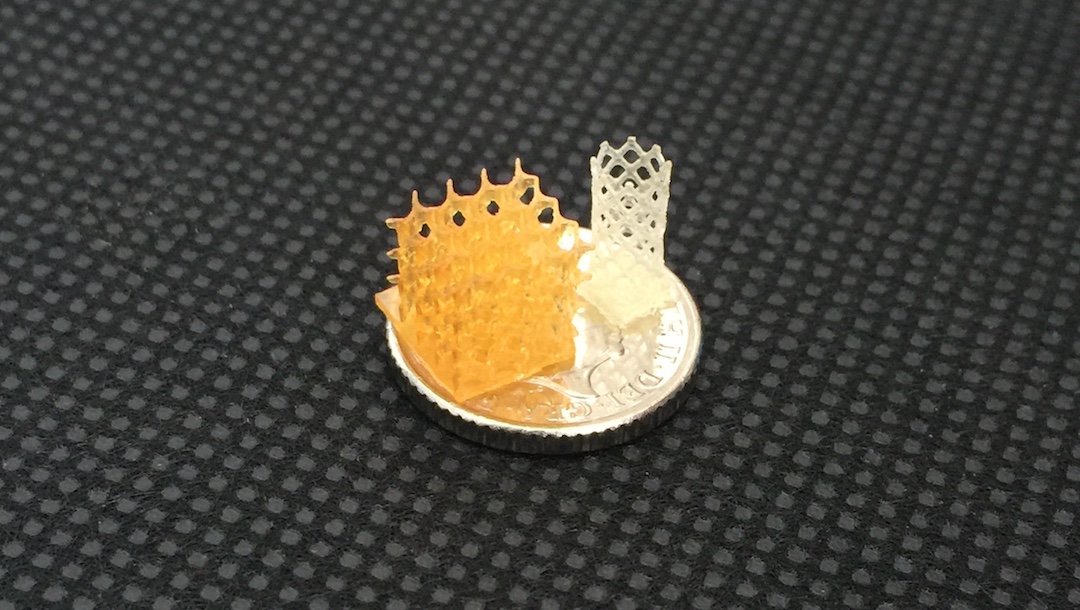A medtech company which has developed a new biomaterial used for 3D printing medical implants has completed a £1.6m funding round.
The investment into Nottingham-based 4D Biomaterials was led by DSW Ventures and backed by the MEIF Proof of Concept & Early Stage Fund, which is managed by Mercia and part of the Midlands Engine Investment Fund, Mercia’s own funds, and existing investor SFC Capital.
The funding will be used to develop a range of products through partnerships with medical device companies and expand its team with the creation of five new jobs at its premises in MediCity.
4D Biomaterials’ product 4Degra can be printed to the exact shape required in the form of an open cell honeycomb structure and used to improve patient outcomes in a range of applications including tumour removal in breast cancer patients. As natural tissue grows back through the voids, the structure gradually erodes and is expelled harmlessly by the body. 4Degra could also help patients recovering from other types of surgery and trauma, such as that caused by road traffic accidents.
4Degra – which is the only 3D printed material of its type that is also biodegradable – was developed for over 15 years in Professor Andrew Dove’s research group at the University of Warwick and University of Birmingham. Having spun out of the universities last year, the company appointed Phil Smith – an entrepreneur with a track record in biotech spin-outs – as its CEO.
Phil Smith, CEO of 4D Biomaterials said: “I am delighted to welcome DSW Ventures and Mercia on board at this exciting time for the company. The raise was oversubscribed by 60%, helped by the continuing support of SFC Capital and our angel investors. This puts us in a strong position as we move into the next phase of taking our products to market.”
The investment will become the seventh in the portfolio for DSW Ventures, the UK-regional focused venture capital business. Ellie Boardman, Investment Executive at DSW Ventures commented: “We have been extremely impressed by the team and product ever since our first meeting. The technology is constantly evolving, and we have been delighted to follow the company’s ongoing progress throughout the investment process. We believe 4D Biomaterials’ technology is truly innovative and have very high hopes for the company’s future.”
Mercia has a strong track record in the healthcare sector. Companies it has supported using MEIF funding include prosthetics technology firm Adapttech, woundcare therapy specialist NuVision and Locate Bio, which is developing new treatments for patients with spinal conditions.
David Baker, Investment Manager at Mercia added: “4D Biotech is pioneering a new generation of biomaterials that offers benefits for patients and the health service alike. Not only could they speed up healing and remove the need for follow-on surgery, whether for tissue reconstruction or to remove the original implant. The funding will enable the company to find partners worldwide.”
Mark Wilcockson, Senior Investment Manager at the British Business Bank added: “We’re delighted to see this latest investment from the MEIF support new biotechnologies in the health sector. One of the key objectives of the MEIF is to see companies, like 4D Biomaterials, innovate, develop new products and expand. We encourage other businesses in the region to consider funding options available through the MEIF.”
Sajeeda Rose, Chief Executive of D2N2 LEP said: “Through the Midlands Engine Investment Fund, we want ambitious businesses to have the opportunity to grow and innovate, so I’m delighted to see this investment for 4D Bio. The region is known for its healthcare innovation and this investment will support 4D Bio in its growth and create highly skilled jobs for our communities.”
The Midlands Engine Investment Fund project is supported financially by the European Union using funding from the European Regional Development Fund (ERDF) as part of the European Structural and Investment Funds Growth Programme 2014-2020 and the European Investment Bank.
